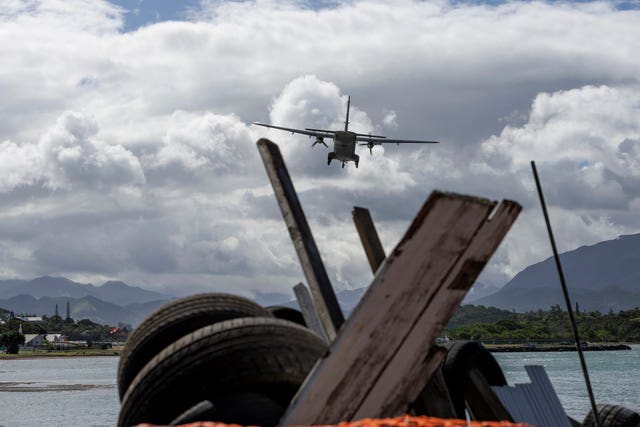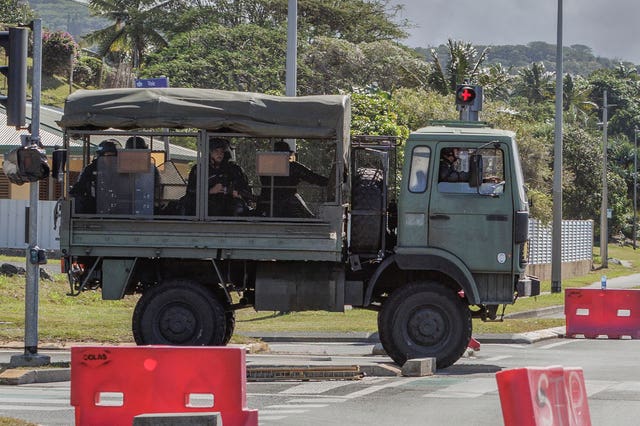Violence has raged across New Caledonia for a third consecutive day hours after the French government imposed a state of emergency in the Pacific territory.
The move boosted security forces’ powers to quell deadly unrest in the archipelago where some residents have long sought to break free from France.
French authorities in New Caledonia and the interior ministry in Paris reported that five people, including two police officers, have been killed in the violence after protests earlier this week over voting reforms pushed by President Emmanuel Macron’s government turned deadly.
At least 60 members of the security forces were injured and 214 people were arrested in Thursday’s clashes with police, which saw arson and looting, according to the territory’s High Commissioner Louis Le Franc.

“Everything is being done to restore order and calm that Caledonians deserve,” French Prime Minister Gabriel Attal said after Thursday’s security meeting at the Elysee presidential palace in Paris.
He said France will provide the island with essential goods after three days of unrest. In addition to the 1,700 security forces troops that have already been deployed to help police curb the violence, 1,000 more are on the way.
The situation “remains very tense, with looting, riots, arson and attacks which are unbearable and unspeakable”, Mr Attal said.
Two members of the island’s indigenous Kanak community were among the four dead, French Interior and Overseas Territories Minister Gerald Darmanin said.
“The (French) state will regain total control,” Mr Darmanin declared in a series of interviews with French media.
The state of emergency will be in place for at least 12 days, Prime Minister Gabriel Attal said on Wednesday.
French military forces were being deployed to protect ports and airports and to beef up security forces’ efforts to curb violence. The curfew has been extended until Friday morning, Mr Le Franc said.
The emergency powers enable French and local authorities on the archipelago to tackle unrest, mainly by authorising the house arrest of people deemed a threat to public order and expanding powers to conduct searches, seize weapons and restrict movements, with possible jail time for violators.

The last time France imposed such measures on one of its overseas territories was in 1985, also in New Caledonia.
The Pacific island east of Australia, home to about 270,000 people, is known to tourists for its Unesco World Heritage atolls and reefs.
But tensions have simmered for decades between the indigenous Kanaks seeking independence and colonisers’ descendants who want it to remain part of France.
People of European descent in New Caledonia, which served as France’s prison colony, distinguish between descendants of colonisers and descendants of the many prisoners sent to the territory by force.
New Caledonia became French in 1853 under Emperor Napoleon III, Napoleon’s nephew and heir. It became an overseas territory after the Second World War, with French citizenship granted to all Kanaks in 1957. The island now hosts a French military base.




Comments: Our rules
We want our comments to be a lively and valuable part of our community - a place where readers can debate and engage with the most important local issues. The ability to comment on our stories is a privilege, not a right, however, and that privilege may be withdrawn if it is abused or misused.
Please report any comments that break our rules.
Read the rules here